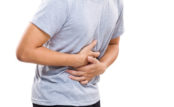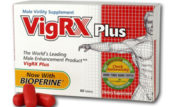 The short answer to this maybe – with a few caveats.
The short answer to this maybe – with a few caveats.
Low testosterone gets the blame for many ailments that men face as they get older. You’ve probably heard many of them: erectile dysfunction and low sex drive rank among the more common reasons why some men opt for a testosterone booster.
And the studies keep coming. A study published in September of last year links low testosterone to heart problems, while another, in the Annals of Rheumatic Diseases, claims that guys who have less of this manliest of hormones are at greater risk of arthritis later in life.
But low T may not be as simple as it sounds. Some men should not pursue a testosterone booster for health considerations. Other factors may be at work too – heart disease and diabetes among them. And we don’t know the long-term effects of testosterone therapy and if they’re worth the risk.
Granted, a few men could indeed benefit from a testosterone booster; those being men whose conditions are definitevly linked to low testosterone as determined by a physician. But it’s often possible to stimulate testosterone naturally, through diet, lifestyle habits and other factors that we’ll discuss in this article.
Three Reasons NOT to Buy a Testosterone Booster
Some men should not pursue testosterone therapy. It’s not a one-size-fits-all solution for men and should not be used if:
You Want to Boost Fertility – Men who want to boost fertility should not buy a testosterone booster. The treatment is not designed for this purpose and in fact, may have the opposite effect because it tells the brain’s testosterone receptors that the body has enough of the hormone. Sperm production stops as a result.
You Think it Will Cure ED – Testosterone therapy is not a direct treatment for erectile dysfunction. Moreover, the latter is often a precursor to serious health issues, like diabetes and heart disease, and warrants a trip to the doctor.
You Have Active Prostate Cancer – You’ll need to consult your doctor on this, but most physicians do not recommend testosterone therapy to men with prostate cancer or male breast cancer.
How Do I Know If I Have Low T?
Get a blood test. Symptoms of low testosterone can mirror those of heart disease, diabetes and depression and require lab work to diagnose whether testosterone deficiency is responsible.
According to the U.S. National Department of Medicine, symptoms of low testosterone include:
- lower sex drive
- erectile dysfunction
- reduced sperm count
- increased breast size
- smaller testes
- fatigue
- loss of body hair
- hot flashes
Symptoms of low T can be unquantifiable too, like lower self-confidence and depression. They might also be sleeping problems or issues with memory. Signs of low T appear at certain thresholds; evidence suggests that sex drive takes a hit with a slight dip in testosterone, while muscle mass and strength are the last to go.
Study: Estrogen Plays a Role Too
A recent study published in the New England Journal of Medicine found there’s more to andropause than low T. Loss of estrogen plays a role too, say observers, who encourage men to shift thinking from ‘Is it Low T?’ to ‘In relation to what?’
Men convert a small amount of testosterone to estrogen, and with less testosterone comes less estrogen, they said. That loss contributed to increased body fat – no surprise given that women produce much more estrogen, and whom typically have more body fat than men.
Signs of low T appear at certain thresholds; evidence suggests that sex drive takes a hit with a slight dip in testosterone, while muscle mass and strength are the last to go.
In the study, lead researcher Dr. Joel Finkelstein and his team recruited 400 healthy men between 20 and 50. Each man took a drug that suppressed natural testosterone and estrogen production. Half the men then took either a testosterone gel or a placebo gel for 16 weeks.
The other half took the gels with a medication that blocked conversion of testosterone to estrogen. In doing so, the researchers hoped to pinpoint the levels at which loss of testosterone corresponded with low T symptoms. And significantly too, whether estrogen influenced any of these ailments.
On the study’s conclusion, they found inverse effects at mild levels of testosterone deficiency; body fat went up and libido went down. Muscle loss and ED occurred later, though, at 200 nanograms per deciliter – well entrenched in ‘andropause territory’.
Five Natural Testosterone Boosters
Are you convinced that boosting testosterone will cure what ails you? Start with your lifestyle. Consider these natural ways to boost testosterone and live better while you do it:
Sleep Well – A University of Chicago study found that young men with sleeping problems had lower testosterone after a week. The hormone was especially low between 2PM and 10PM on days when they didn’t get enough shut-eye. Granted, it’s easier said than done to sleep well if you’re prone to insomnia – speaking from experience – but you can start with good sleep hygiene.
Lose the Flab – Middle-aged men who are overweight and with prediabetes are at risk of low testosterone. A 2012 study found men in this demographic got much of their groove back, with an almost 50% increase in testosterone when they lost weight.
Get Your Zinc – It’s no surprise that oysters rank among the top foods that make you horny. The prized shellfish are famously high in zinc, which is linked to regulating serum testosterone levels in healthy guys. Oysters not your thing? You can also get zinc in red meat, poultry, beans, nuts, crab, lobster and whole grains.
Avoid Sugar – There may come a day when sugar-rich products like soda are mentioned in the same sentence as cigarettes. The Endocrine Society reports that glucose (sugar) reduces testosterone by up to 25%. This finding held true in both people with prediabetes, diabetes and those with normal tolerance to glucose.
Exercise – Let’s get rolling, man! Studies reveal that testosterone increases after exercise. Resistance training is particularly effective, but you don’t need to get full-on Arnold to benefit – just aim to move for 30 minutes a day. Your sex drive will thank you too. And finally, don’t forget to eat these foods that boost testosterone. Barring allergies, of course.
And finally, don’t forget to eat these foods that boost testosterone. Barring allergies, of course.
Testosterone Replacement Options
So you’ve been to the doctor and he’s diagnosed you with low T? You might benefit from a testosterone booster. That means your blood test has come back and you’re clearly on the low side, probably at 300 ng/dl or less.
If you want to proceed, you have a few options, including:
Injections – You’ll need to take these every two weeks, and with the disadvantage of a large dose immediately on application that quickly drops off.
Topical Gels – Less intrusive than injections, a topical gel should be applied in the morning and typically absorbs within two to six hours. This provides a steady dose of testosterone, though you’ll need to ensure no women or children touch the gel as it absorbs or it could alter their hormones.
Patches – Like gels, patches are unintrusive and offer a steady dose of testosterone. Patches may irritate the skin.
Pellets – These are implanted underneath the skin on the back during an outpatient office procedure. The results could last for up to four months. This option is relatively inexpensive too, at roughly $250.
As well, we offer a natural testosterone booster here at Natural Health Source, called TestRX, from the makers of VigRX Plus. It’s made at a cGMP-compliant facility and comes with the reassurance of a 60 day money-back guarantee.
Not to blow our own horn, but if you’re in the market for a natural testosterone supplement, TestRX is a good option.
Remember, a testosterone booster is no substitute for good habits. Diet and exercise play a huge role in quality of life. Don’t use synthetic testosterone as an excuse to quaff a burger and soda with each meal.
Watch low T symptoms. Sex drive appears to be the first to go, along with unquantifiable feelings like something is off; you may feel depressed or have trouble sleeping. Listen to your body and speak with your doctor. Don’t be embarrassed – be honest. Get a blood test to see what’s up.




